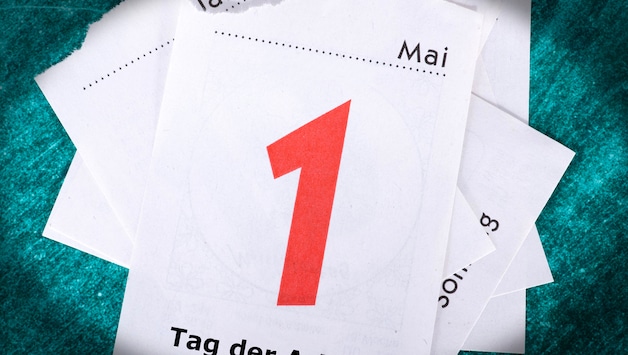In 2024 we will celebrate May 1st for the 134th time. However, Labor Day is not just a holiday for us.
Protests for better working conditions turned into a global celebration of solidarity. To this day, the day is still important for workers and unions.
A less common name for May 1st today is Labor Movement Day. The history of the holiday already suggests these names.
It all started in the 17th century, when the working world was much rougher than it is today. The working hours were often well over 12 hours a day. Added to this was the heavy physical work in the factories. And all of this for very low wages and precarious working conditions.
In short: hard work, hardly any rights and little money. Understandably, resentment grew among the workers and as their self-confidence increased, they demanded more rights and wages for themselves.
On May 1, 1856, workers in Australia launched a mass demonstration demanding, among other things, an 8-hour day. At the time, workers in America were no better off than their Australian counterparts. This is why there was increasing resistance to the mostly undignified working conditions.
On May 1, 1886, the time had come: the American labor movement called for a general strike. The workers’ demonstration was imitated by August Spies and seven colleagues.
Spies, who was editor-in-chief and publisher of the Arbeiter-Zeitung, spoke to workers at the Haymarket in Chicago on May 1, 1886. For this reason, the movement later went down in history as the Haymarket Affair.
In the following days there were numerous violent clashes between the police and the demonstrating workers. There were many dead and injured on both sides. The eight main initiators of the strike were indicted and, like August Spies, executed shortly afterwards.
To commemorate the numerous deaths, May 1st was celebrated for the first time in 1890 as a holiday for the workers’ protest movement.
In Germany, May 1st is a public holiday known as Labor Day or May Day. It is traditionally used by trade unions and workers’ organizations to demonstrate for workers’ rights.
Demonstrations and rallies will take place in many German cities on May 1st, where trade unions and employee organizations demonstrate for better working conditions, higher wages and more social justice. The largest and most famous event is the May rally.
In addition to political events, May 1st is also often used as a day of leisure and celebration. May festivals with music, food and drink take place in many cities. The maypole is also traditionally set up and is often decorated with colorful ribbons and wreaths.
Employers must give their employees time off on May 1st to celebrate and relax on the day.
